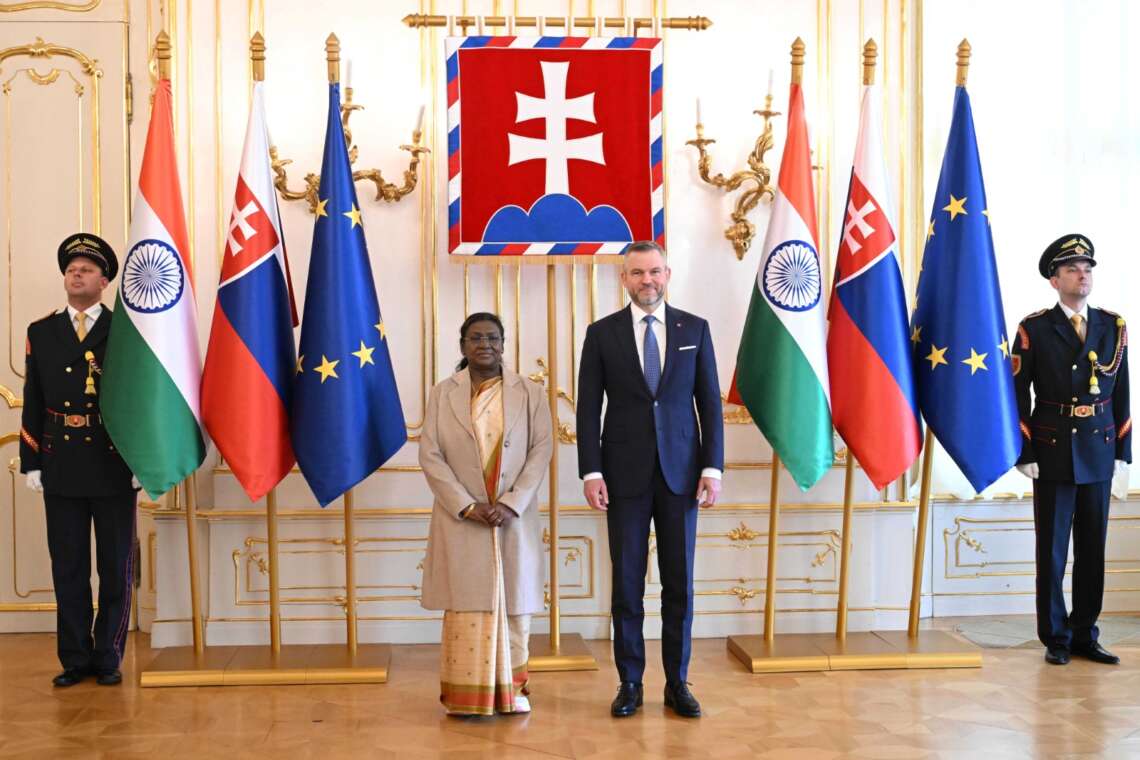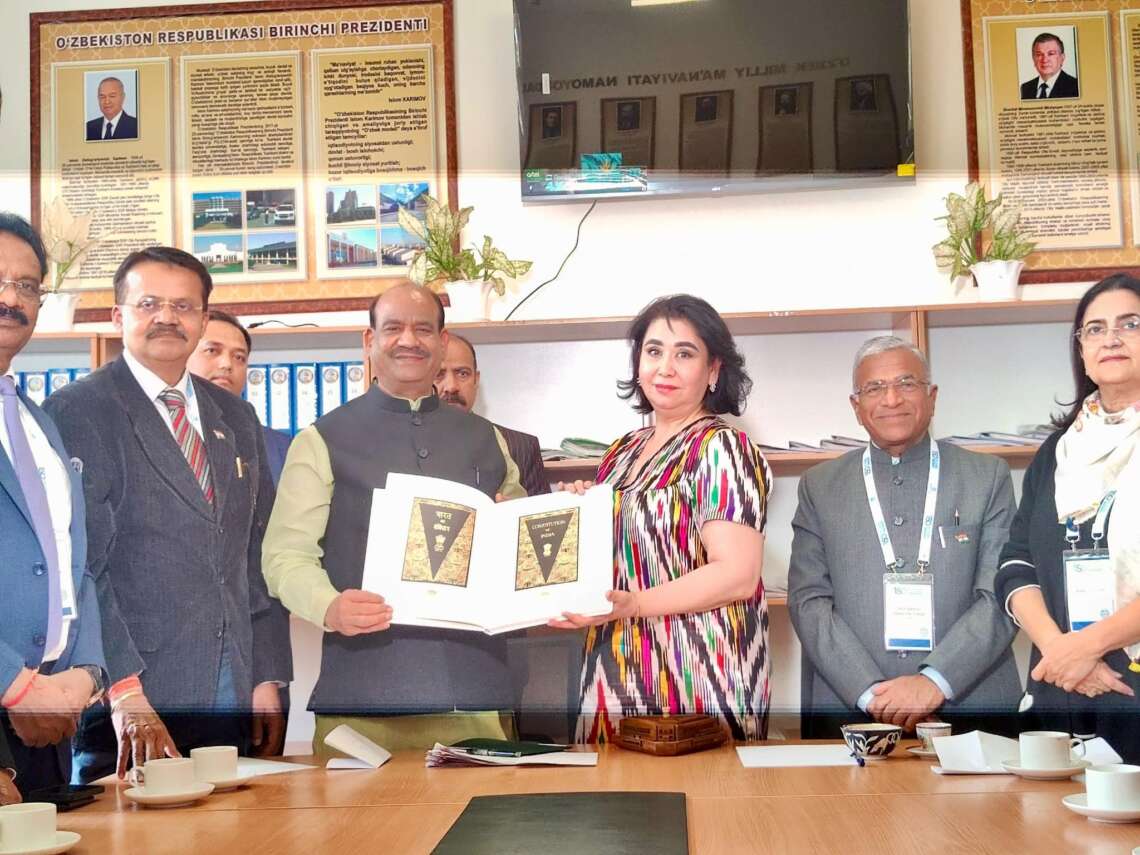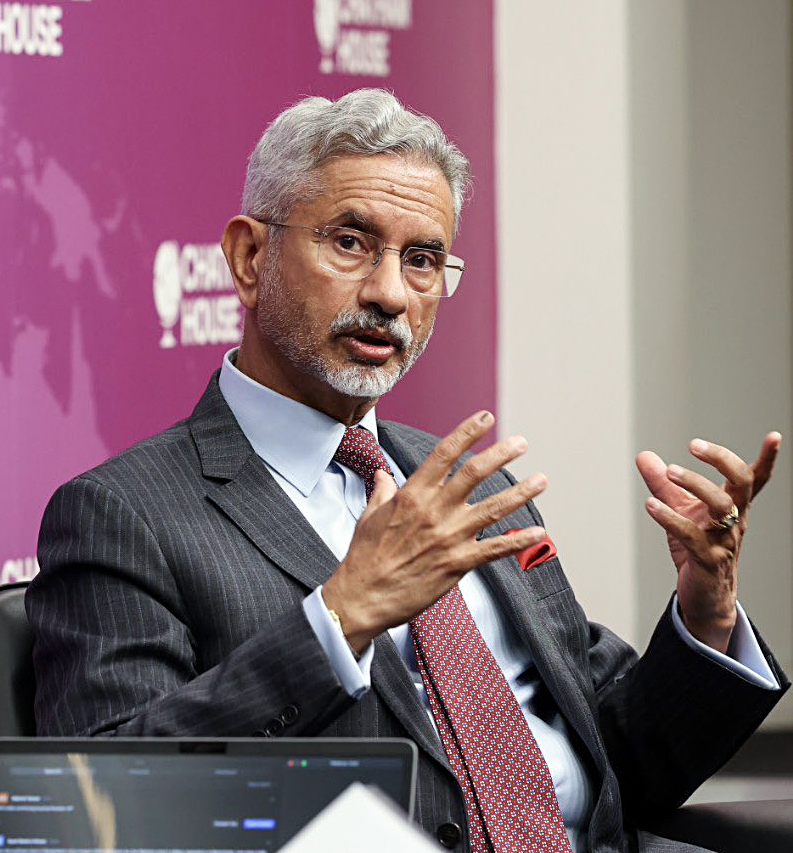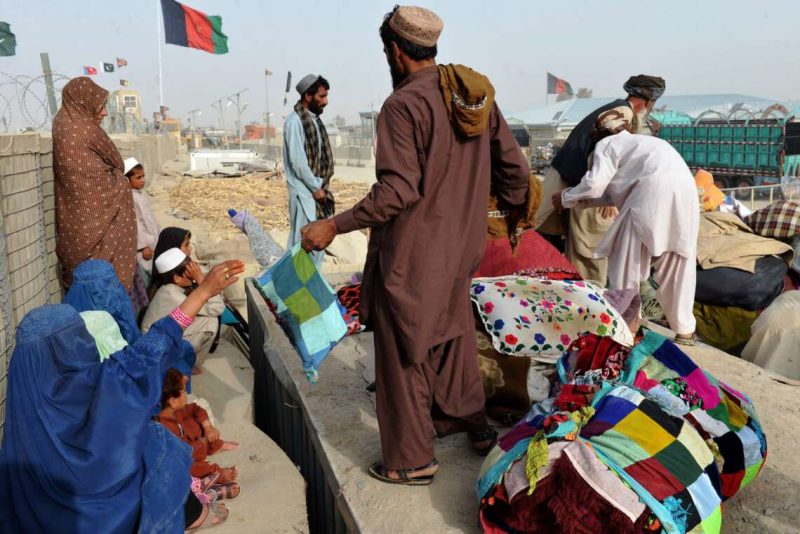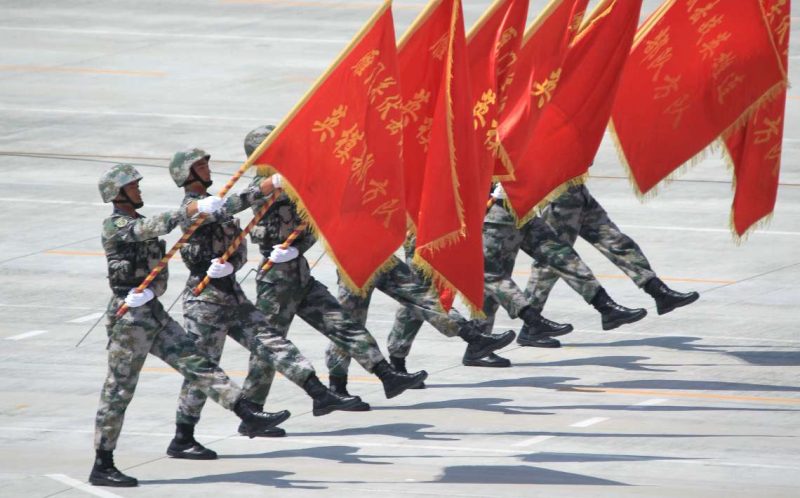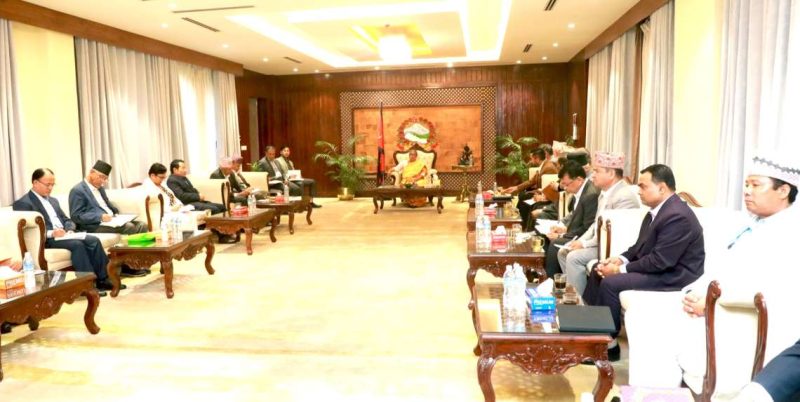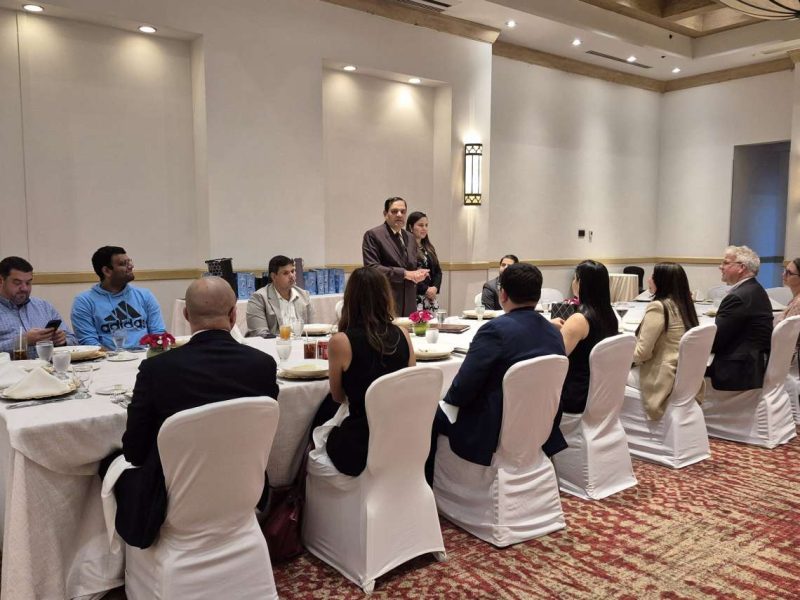President Droupadi Murmu and President Peter Pellegrini reviewed the full spectrum of India–Slovakia relations and reaffirmed their commitment to expanding cooperation across multiple sectors
President Droupadi Murmu held a productive meeting with Slovak President Peter Pellegrini in Bratislava on Wednesday, marking a historic milestone as the first visit by an Indian president to Slovakia in nearly three decades. The leaders reviewed the full spectrum of India–Slovakia relations and reaffirmed their commitment to expanding cooperation across multiple sectors.
In a post on social media platform X, Ministry of External Affairs (MEA) spokesperson Randhir Jaiswal wrote: “President Droupadi Murmu @rashtrapatibhvn & President @PellegriniP_ held productive talks in Bratislava. The leaders reviewed various facets of India–Slovakia relations & agreed to work towards strengthening the bilateral partnership across diverse sectors.”
President Murmu arrived in Slovakia from Portugal, where she had concluded the first leg of her two-nation state visit. Upon her arrival in Bratislava, she was welcomed with traditional Slovak hospitality, including a customary greeting of bread and salt by a couple dressed in folk attire. She was accorded a ceremonial Guard of Honour at the Presidential Palace, underscoring the significance of her visit.
During her discussions with President Pellegrini, President Murmu acknowledged the growing admiration for Indian art and culture in Slovakia. She emphasised the potential for deeper collaboration in India’s fast-growing media, entertainment and creative economy sectors. She also extended an invitation to Slovakia to actively participate in the upcoming WAVE Summit in Mumbai, scheduled from 1st to 4th May 2025.
Highlighting the importance of economic cooperation, both leaders presided over the exchange of two Memorandums of Understanding (MoUs). The first, signed between the National Small Industries Corporation (NSIC) and the Slovak Business Agency, aims to promote cooperation in the field of Micro, Small and Medium Enterprises (MSMEs). The second MoU was inked between the Sushma Swaraj Institute of Foreign Service (SSIFS) and the Slovak Ministry of Foreign and European Affairs, aiming to foster diplomatic collaboration and capacity building.
In a post on X, the President’s Secretariat said: “President Droupadi Murmu discussed various aspects of bilateral relations and issues of shared global and regional interests with President Peter Pellegrini of the Slovak Republic during one-to-one meeting and delegation-level talks.”
Indian representatives in the talks included Minister of State Nimuben Bambhaniya, MPs Dhaval Patel and Sandhya Ray, and senior officials. The delegation underscored India’s commitment to furthering diplomatic and economic ties with Central Europe.
President Murmu expressed her appreciation for President Pellegrini’s personal initiative and efforts in nurturing the bilateral relationship. She also encouraged greater cultural and creative exchanges, including the promotion of Slovakia as a filming destination and a potential partner in joint productions.
The visit comes at a time of growing mutual interest in strengthening ties between India and European nations. As part of India’s broader diplomatic outreach, President Murmu’s engagements have focused on advancing cooperation in trade, culture, education and technology.
President Murmu’s preceding visit to Portugal was equally significant. She was received with full ceremonial honours and held discussions with President Marcelo Rebelo de Sousa and the President of the Assembleia da República, José Pedro Aguiar-Branco. During her visit to the Portuguese Parliament, she signed the official book of honour and met with key members of the Portuguese government, reiterating India’s commitment to deepening its engagement with the EU member states.
President Murmu’s twin visits to Portugal and Slovakia mark a key chapter in India’s growing outreach to Central and Western Europe. Her meetings with the Slovak and Portuguese leadership signal renewed interest in expanding diplomatic, cultural and economic partnerships in the region.
Tribute at Gate of Freedom Memorial
President Droupadi Murmu on Wednesday (local time) laid a wreath and paid respects at the Gate of Freedom Memorial in Bratislava, Slovak Republic, on the banks of the Danube River during her two-day State visit to the country.
The memorial commemorates those who lost their lives while attempting to flee Slovakia during the communist regime.
Unveiled in 2005, the Gate of Freedom Memorial sits below Devin Castle at the confluence of the rivers Morava and Danube in the capital of the Slovak Republic, right on the border with Austria.
This memorial signifies a time when the borders to the West were protected by barbed-wire fences charged with high-voltage electricity and attempts to escape from behind the Iron Curtain were punished by imprisonment. The concrete gate riddled with bullets and broken iron bars commemorates four hundred men and women who were killed at the border of then Czechoslovakia during their attempts to escape between 1945 and 1989.
The Iron Curtain was constructed to halt the free movement of people and stop the emigration from Soviet satellite states.
The expression Iron Curtain was introduced into Cold War terminology by Winston Churchill in a speech in March 1946 to describe the intensified border security between countries of the Eastern Bloc and the West. It refers both to the ideological divide between the two blocs and the physical border fortifications that the Eastern Bloc set up along its borders with the West. Its best-known and most intricate part was the Berlin Wall.
In 1989, the Iron Curtain came down altogether, as all Eastern European countries shed communism, the Soviet Union collapsed, and the Cold War ended. The military installations, watchtowers and barbed wire that used to secure this extremely sensitive spot back then were quickly removed after the Velvet Revolution in Czechoslovakia that ended communist rule.
The gate is made of white stone and its pillars are peppered with artificial bullet holes of border guards; however, the iron bars are broken as a symbol of the final victory of freedom.


